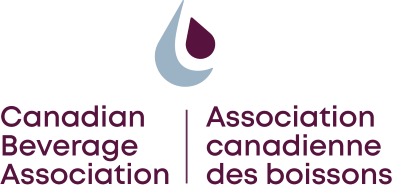The Conference Board of Canada Reveals Latest Insights into Consumer Spending Patterns and the Economic Impact of Canada's Non-Alcoholic Beverage Sector
TORONTO, June 29, 2023 /CNW/ - New evidence shows that low-calorie non-alcoholic beverages have outstripped their full-calorie counterparts and represent 58 percent of the market across all beverage categories. This shift in consumption towards low-calorie servings has reduced the total daily calories per person from beverages by over 16 percent.
The Conference Board of Canada, in partnership with the Canadian Beverage Association, has released a new report that looks at trends and the economic impact of the non-alcoholic beverage sector in Canada. The report provides insights into consumer spending patterns and trends, as well as the economic impact of the industry and sustainability measures being taken.
The report shows that real consumption expenditure on non-alcoholic beverages has grown by 14 percent between 2010 and 2019, reaching $11.9 billion, with about 11.2 percent of the total yearly food budget among all Canadian households allocated to non-alcoholic beverages on average. Over the last decade, real spending on non-alcoholic beverages has also stabilized at around $800 per household annually.
The non-alcoholic beverage sector contributes to the Canadian economy, supporting nearly 56,000 jobs and generating over $5 billion in GDP in 2019. The sector also has a substantial tax impact, with non-alcoholic beverages contributing over $2 billion in tax revenue.
"I am thrilled to see the strides our industry is making in promoting low- and no-calorie servings," said Krista Scaldwell, President of the Canadian Beverage Association. "This report shows the collective efforts of our industry's proactive initiative to reduce calories from beverages over the past decade. The CBA remains committed to driving positive change that will benefit the beverage industry for generations to come."
The report also provides an overview of various sustainability measures the non-alcoholic beverage sector has taken to improve sustainability. These include adopting sustainable packaging materials, ongoing improvements to producer responsibility and deposit-return systems, and investment in sustainable production processes. In 2019, non-alcoholic beverage producers diverted over 11 billion beverage containers from landfills resulting in a savings of more than 1 million metric tonnes of carbon dioxide equivalents, equivalent to taking almost 240,000 cars off the road.
The full report is available on the Conference Board of Canada website.
For more information on CBA and its membership, visit www.canadianbeverage.ca
The Canadian Beverage Association is the national trade association representing the broad spectrum of companies that manufacture and distribute the majority of non-alcoholic refreshment beverages consumed in Canada. Over 58,000 individuals are employed directly, indirectly and through induced jobs in the Canadian beverage industry.
The Conference Board of Canada is the country's leading independent research organization. Since 1954, The Conference Board of Canada has been providing research that supports evidence-based decision-making to solve Canada's toughest problems.
Media Contact:
Erich Schmidt
Senior Manager, Communications and Public Affairs
[email protected]
SOURCE Canadian Beverage Association


Share this article